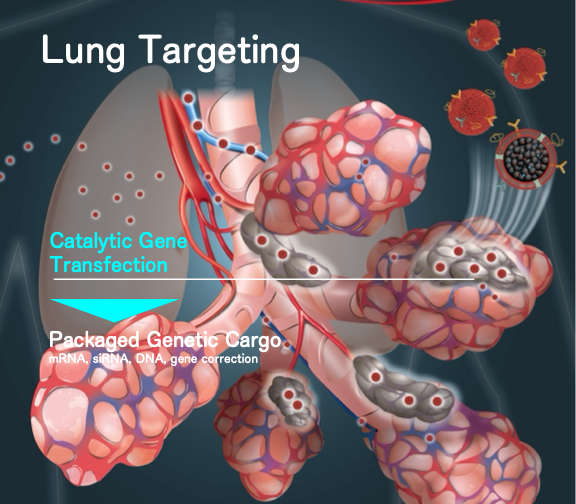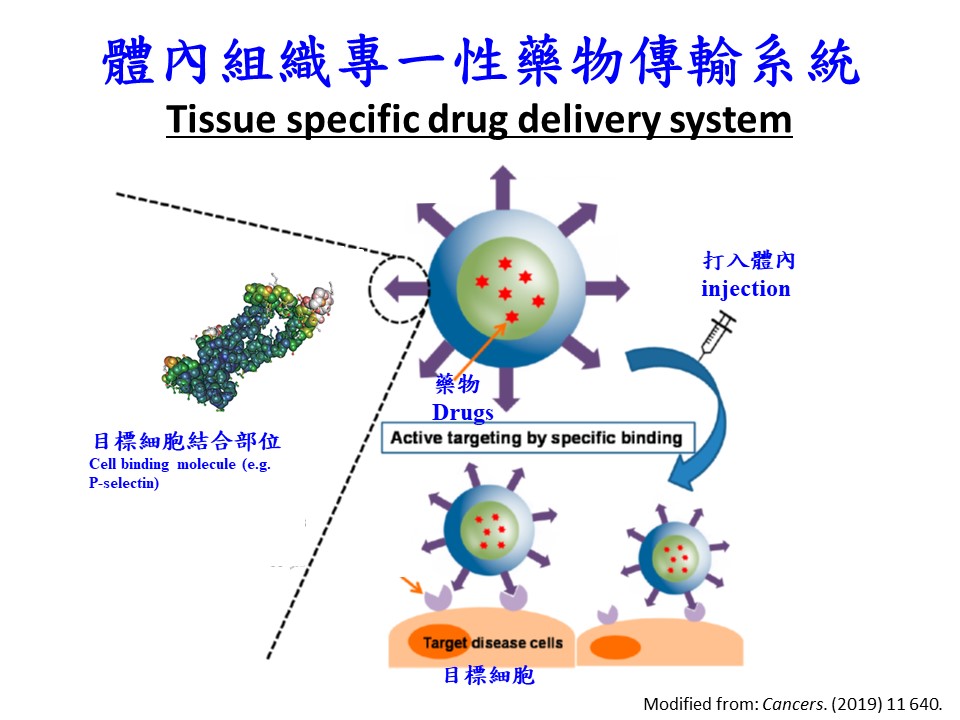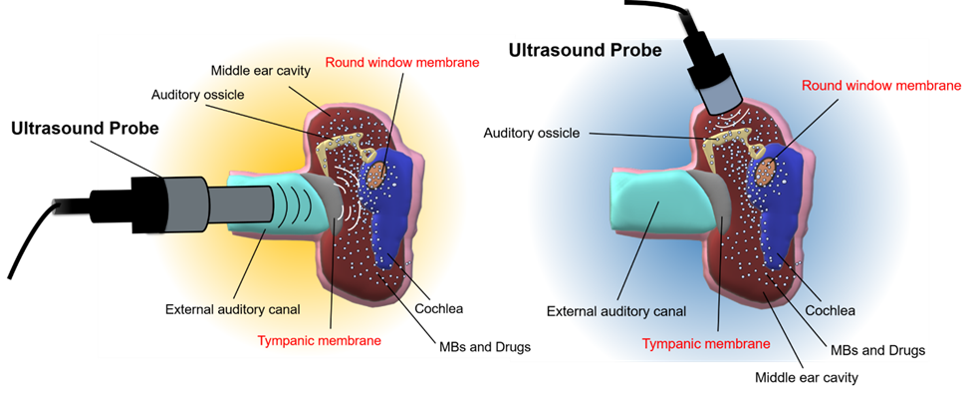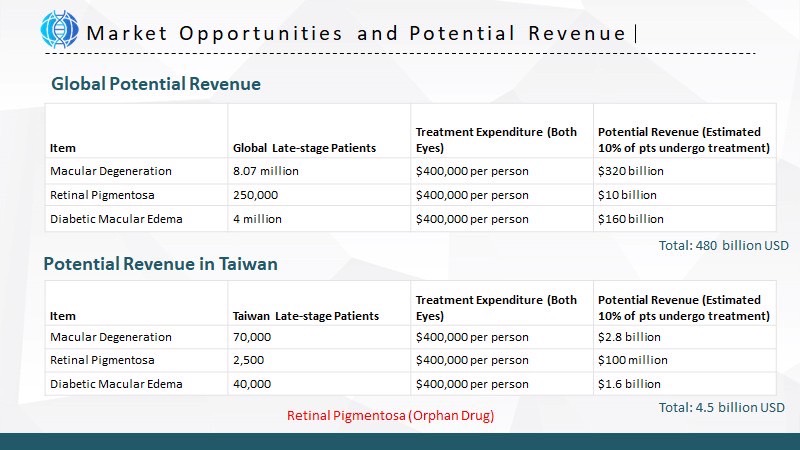Catalytic Powering the Next Wave of Genetic Medicines Through Superior Delivery


Gene therapy holds great potential as a way to treat a variety of diseases c
aused by defective genes. However, to date, a major hurdle in gene deliver
y to the correct part of the body has been the difficulty of avoiding gene o
ff-target effects (ineffective delivery). In many cases, gene drugs are encapsulated in lipid nanoparticles (liposomes), and the gene expression effici
ency of such non-viral drug carriers is usually low.
The development of lung gene therapy drugs is facing the greatest difficul
ty: (1) cannot effectively accumulate in the diseased part of the lung; (2) ca
using unnecessary exposure and Off-target toxicity. In order to drastically
improve the effectiveness and safety of lung gene therapy, our team devel
oped a new type of lung delivery nucleic acid carrier by combining differe
nt material properties, which can effectively deliver nucleic acid gene ther
apy drugs to the lungs and accumulate them during intravenous injection.
There, and using the world's first catalytic transfection effect (Catalytic tr
ansfection) to highly improve efficiency, it is the first time in the field of ge
ne delivery to propose the use of lung active targeting and catalysis to ach
ieve local target transfection targets.
We chose lung cancer as an initial disease treatment model and used nove
l vectors combined with siRNA drugs. Through preliminary cell and animal
proof-of-concept studies, we determined that this combination inhibits P
D-L1 protein expression in cancer cells. This study has confirmed that the
new vector has efficient accumulation ability in the lung and has the abilit
y of nucleic acid transfection. In an animal model of lung metastases. At th
e same time, our team is also testing different types of nucleic acid drugs,
including Plasmid DNA and Messenger RNA, etc., which have shown high
transfection activity in cell experiments, which shows that this new type of
nucleic acid carrier has a wide range of application space and value.
National Tsing Hua University (NTHU), established in 1911 and located in Hsinchu, Taiwan, is one of the top research universities in the country. NTHU offers a wide range of programs in fields such as engineering, science, management, and humanities. The university is known for its strong emphasis on innovation, research excellence, and fostering global perspectives. With a commitment to academic rigor and interdisciplinary collaboration, NTHU plays a key role in advancing knowledge and technological development, contributing to both Taiwan’s growth and the global academic community.

Vesicles comprising lectins expressed on the surface and methods of use thereof to deliver an agent to autophagic and apoptotic cells

Method of delivering drugs facilitated by microbubbles through indirect mechanical oscillation wave

AI Clerk Platform:Tool for Automatically Converting Unstructured Medical Chart/Data into Semantic Structured Data

Direct Reprogramming of Human Fibroblasts into Retinal Progenitor Cells by Small Molecules to Treat Photoreceptor Degeneration Induced Blindness
Technology maturity:Experiment stage
Exhibiting purpose:Display of scientific results
Trading preferences:Negotiate by self
Coming soon!